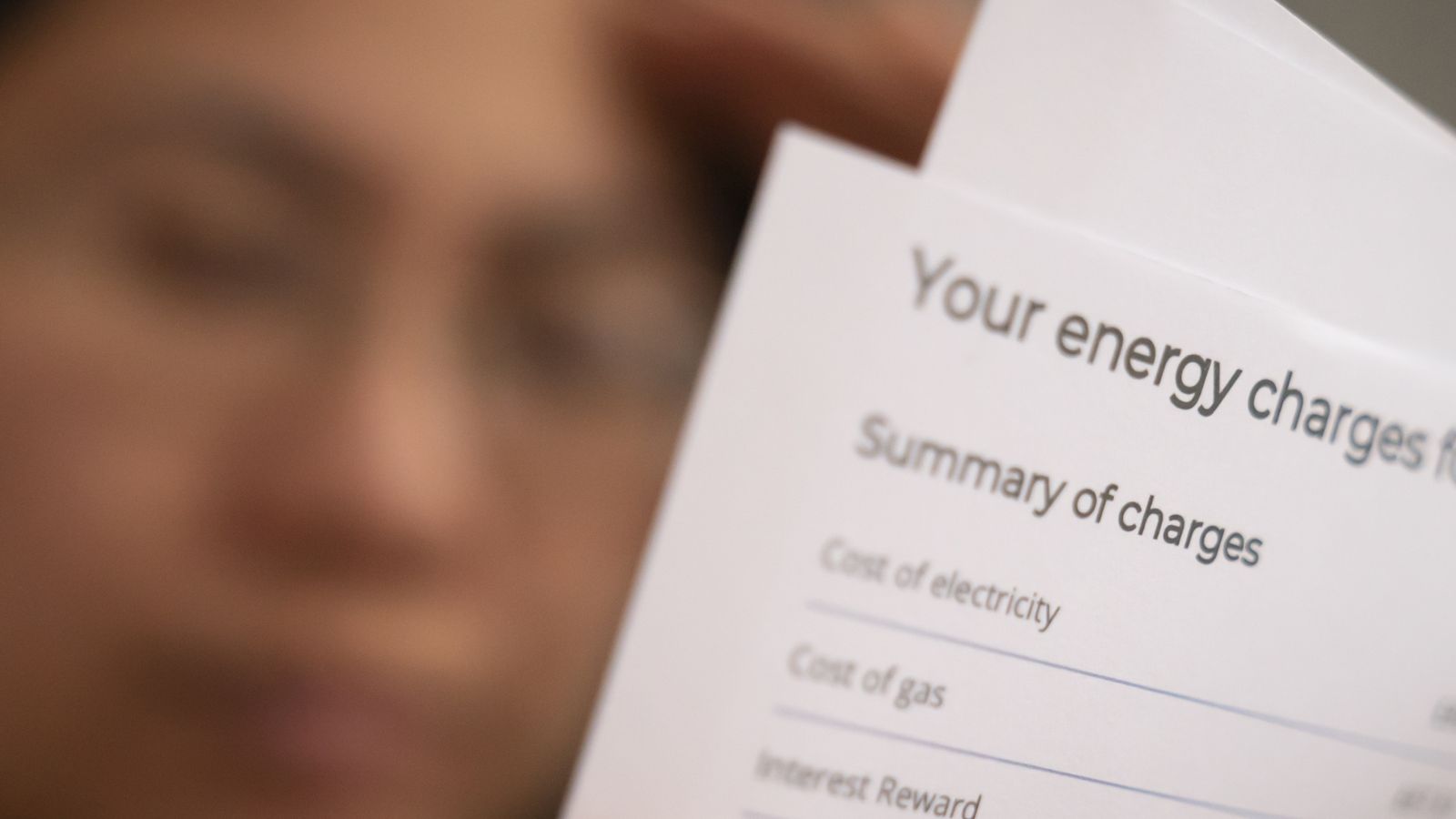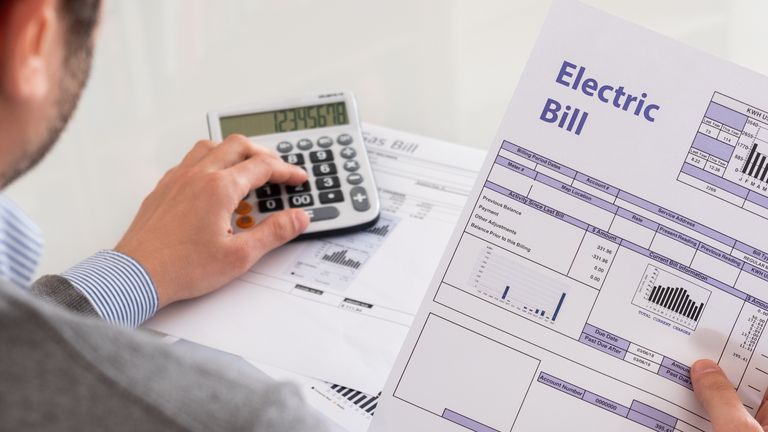The energy price cap is to fall by £20 a month, the industry regulator has announced, but households are to face an additional “temporary” charge to help suppliers support struggling customers with record levels of debt.
Ofgem confirmed a 12% price cap reduction will take effect from 1 April, taking the annual energy bill for a typical household paying by direct debit for gas and electricity to £1,690.
The current level, in place from January to March, is £1,928.
The fall reflects lower wholesale prices, with natural gas costs over the peak winter season falling across Europe due to higher stockpiles.
Read more:
Energy price cap reduction – live reaction
Why the cap has come down in ‘new normal’
A mild winter has been a factor in the drop.
The adjustment by Ofgem, while some relief for household budgets squeezed by the tough economy, still leaves the cap more than 50% up on pre-crisis levels.
The regulator confirmed alongside the cap figure that it was taking action to tackle a record £3.1bn in bill arrears, though prepayment meter customers would not be affected.
“To address this challenge in the short-term, Ofgem will allow a temporary additional payment of £28 per year (equivalent to £2.33 per month) to make sure suppliers have sufficient funds to support customers who are struggling”, its statement said.
“This will be added to the bills of customers who pay by direct debit or standard credit and is partly offset by the termination of an allowance worth £11 per year that covered debt costs related to the COVID pandemic.”
Ofgem said its wider action would include further closing the gap between the higher charges that prepayment meter customers pay and what most other households face.
It said those on prepayment meters would save around £49 per year while direct debit customers would pay £10 per year more.
The watchdog said that the new figures, taken together, meant that bills would still fall to their lowest level since Russia’s invasion of Ukraine in February 2022.
Russia’s vast gas supplies to the continent were shut down shortly after its military action began, forcing a scramble for replacement volumes.
Much of the void has been filled by additional supplies from Norway and heightened shipments of liquefied natural gas (LNG).
Market experts have warned that a return to pre-crisis energy prices is unlikely to occur given the new realities over the source of supply hampered, in the short term at least, by attacks on shipping in the Red Sea that have forced LNG cargos to make longer journeys.
The trend of higher prices has led to questions over whether the price cap, initially introduced to prevent rip-off charges, has become a barrier to competition. Ofgem is working with the government to address the cap’s future.
It is now utilised by the vast majority of homes in the wake of the supplier crisis that began in 2021 that saw dozens of operators collapse, including Bulb.
Fixed deals have been hard to come by ever since but there are some that have undercut the price cap.
Read more:
What is the price cap – and how will it affect my bills?
Research for professional services firm KPMG, released separately on Friday, suggested that 48% of households believed the price cap was a barrier to fixed-term offers by suppliers.
A third of respondents said they no longer shopped around because of the cap.
Price comparison site uSwitch said Ofgem’s wider action on elements of the price cap bill should help improve the volume of offers.
Its director of regulation, Richard Neudegg, said: “Consumers have been patiently waiting for better tariff choices, and many are desperate to take advantage of cheaper rates.
“If you are on a standard variable tariff, now is the time to start keeping an eye out for deals.
“The end of the Market Stabilisation Charge also on 1st April will be a positive step, taking out an unnecessary premium on deals.
“However, Ofgem’s decision to extend the Ban on Acquisition-only Tariffs for another year is a gamble.
“Although this could be cut to six months, while it’s in play, fixed deals risk being more expensive than they would otherwise be, at a time when customers are finally hoping to lock in some certainty.”


